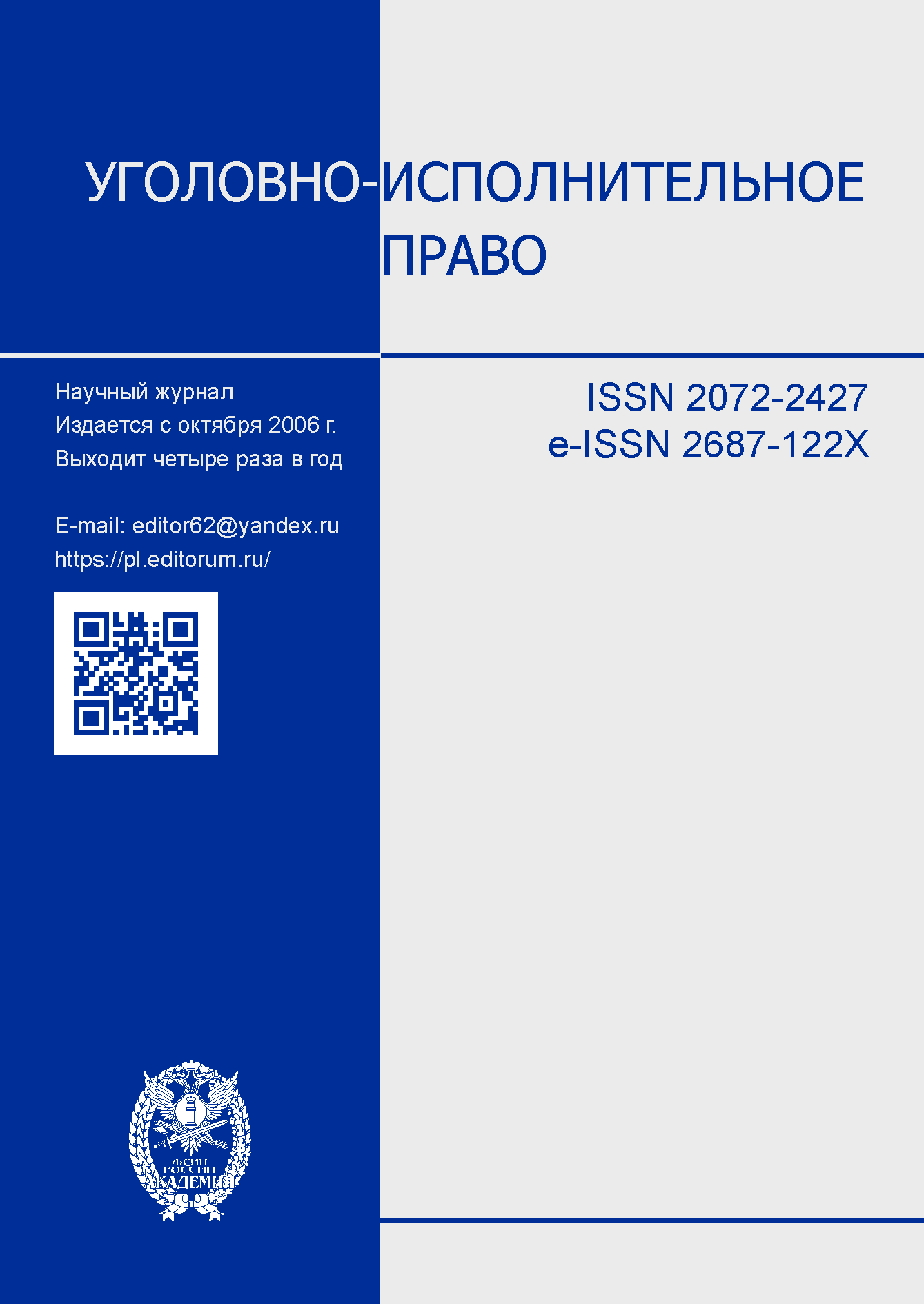The review of the monograph notes the author’s conclusions as the most original and scientifically novel (regarding the public impact on convicts as a way of implementing public-private partnership in the penitentiary sphere, foreign experience, economic and legal aspects of resuscitation of exile as a type of criminal punishment, the activities of business entities and religious organizations, as well as the correctional and preventive orientation of the considered the Institute in the execution of various punishments , etc . D.), as well as its possible drawback (insufficiently extensive study of the interaction of institutions and bodies of the penal enforcement system with public and other non-governmental organizations in the process of re-socialization of persons released from places of deprivation of liberty). The general conclusion is made that the monograph contains relevant recommendations on changing penal enforcement and other legislation, creative solutions to theoretical and practical problems in the field of execution of criminal penalties and is worthy of publication.
public-private partnership, execution of criminal penalties, correction of convicts, prevention of new crimes, re-socialization, public impact











